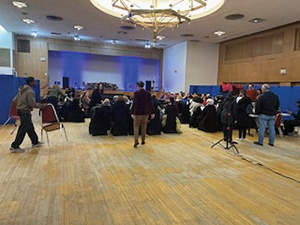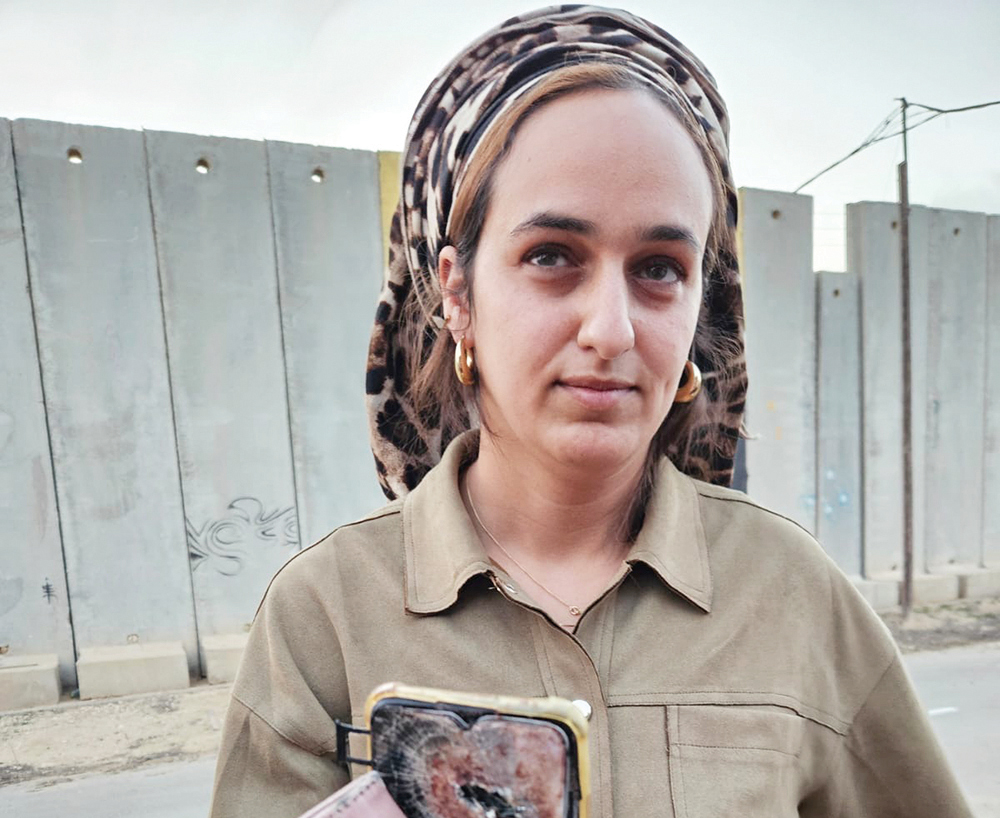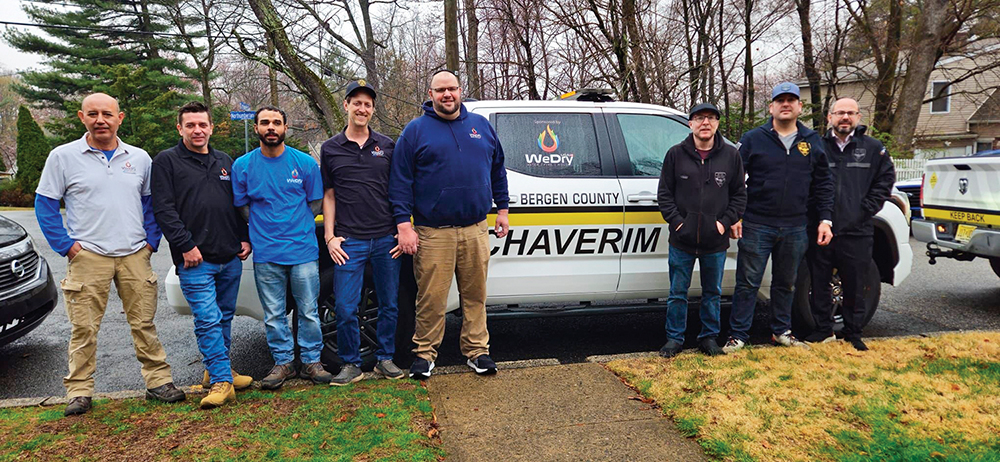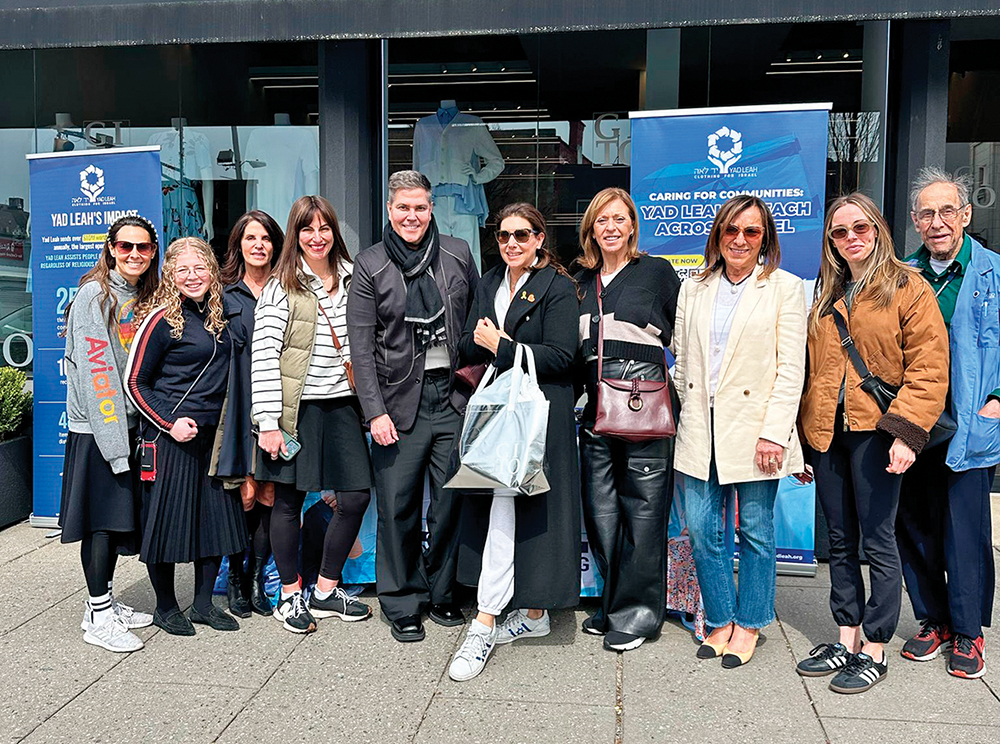I remember a boy from my days learning in Yeshiva Ner Yaakov in Eretz Yisrael. His name was Alan Weiss, from Atlanta, Georgia. He was a boy who struggled with his Hebrew, so I figured there must be a story involved if he was accepted into my yeshiva. A couple of years ago, my rosh yeshiva from Ner Yaakov, Rabbi Yehoshua Liff, asked me if I remembered Alan. “Sure,” I said. “But do you know his Chanukah story?” he asked. I didn’t. So thanks to Rabbi Liff, Alan’s story began to come together.
Alan’s family was not religious. He attended public high school and worked part-time in a major department store to earn some extra cash. It was the winter holiday season and Alan noticed there was no menorah in the store displays. When he asked his manager about it, he was surprised to be assigned to remedy the problem! “Okay, we can add a menorah, but you’re the one who’s Jewish, so I want you to take care of it.”
Alan didn’t know much about a menorah, but he did his research and found out how the menorah should be set up, the time for lighting it, and what brachos should be said. A kiruv rabbi in Atlanta was shopping in the store during Chanukah and saw Alan make the brachos and light the menorah in the store at the proper time. The rabbi approached Alan and engaged him in conversation. On the spot, he invited Alan to his house for menorah lighting and a Chanukah meal, and they began developing a relationship. Soon, Alan began coming over to the rabbi’s house for Shabbos, then came shiurim and learning with a chavrusa. Although Alan’s Gemara knowledge was limited and he still struggled to read Hebrew, the rabbi arranged for him to go to Yeshiva Ner Yaakov in Eretz Yisrael after high school, where he was ultimately successful through hard work.
The Chanukah menorah has a powerful attraction for all Jews, even those distant from Torah and mitzvos. For some of them, the menorah can even bring them to embrace a life of Torah, like Alan Weiss did.
The Sfas Emes says that the Torah compares a person to a candle: “Ner Hashem nishmas adam, the flame of Hashem is the human soul.” The Gemara lists certain wicks and oils which may not be used for Shabbos candles, yet can be used for a Chanukah menorah. This halacha signifies that even Jews/candles who do not connect to Shabbos may have a connection to Chanukah.
According to Halacha, the ideal placement of a menorah is outside the home, at the entrance to one’s courtyard, within three to 10 tefachim from the ground. (A tefach is the width of a person’s palm, about 3.5 inches). In the diaspora, most people light their menorahs indoors. The Gemara tells us that Hashem’s presence does not descend below 10 tefachim from the ground. The Sfas Emes notes that the lower parameters for the lighting of the menorah tells us that Hashem’s presence does indeed descend below 10 tefachim… on Chanukah. This explains why people who are distant from mitzvos feel a connection to Chanukah, since Hashem extends Himself more to people on Chanukah.
The placement of the menorah at the entrance to one’s courtyard, in order for people in the street to see it, is another indication that the light of the menorah shines even for people who are far removed from Hashem.
Why does the holiday of Chanukah and the menorah cause such a magnetic pull to Hashem?
The Midrash says that the Greeks forced the Jews to write on the horn of an ox that they have no connection with the God of Israel. The intent of the Greeks was to remove every Jew’s connection to Hashem. The Chashmonaim didn’t listen. As a reward for their fierce dedication to Hashem and standing up to the Greeks, Hashem gave the Jews the mitzvah of menorah—a mitzvah for every Jew to light and for every Jew to thereby feel connected to Hashem.
But don’t think that the menorah is focused just on Jews who are distant in their observance. Even Jews who keep the Torah know that there are areas where they may have challenges. Chanukah is a time when Hashem gives us more divine assistance so that we may further connect to Hashem in a deep, meaningful way.
When we light the menorah this Chanukah, let’s ask Hashem to illuminate the souls of all Jews to feel and recognize a deep connection with Hashem, and to provide spiritual illumination not just for the benefit of the outside world, but for ourselves as well.
Rabbi Baruch Bodenheim is the associate rosh yeshiva of Passaic Torah Institute (PTI)/Yeshiva Ner Boruch. Rabbi Bodenheim can be reached at rbbodie@gmail.com. For more info about PTI and its Torah classes, visit www.pti.shulcloud.com












